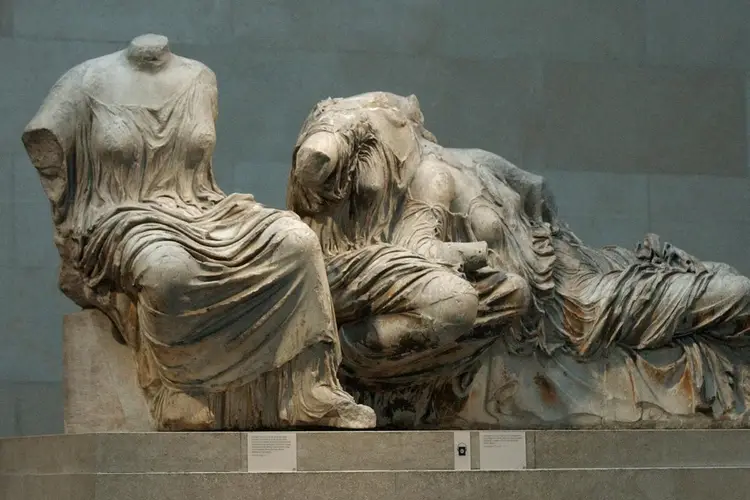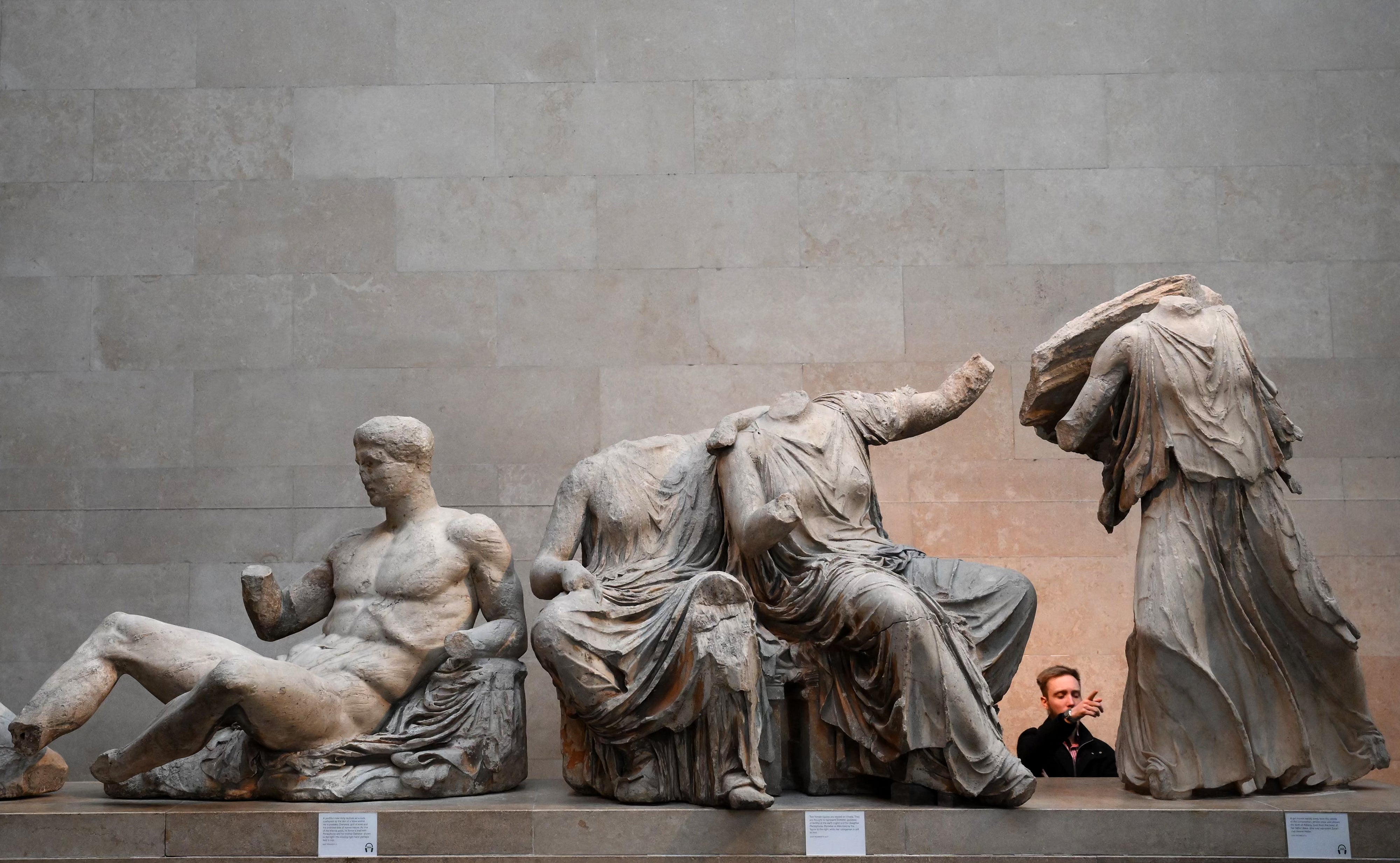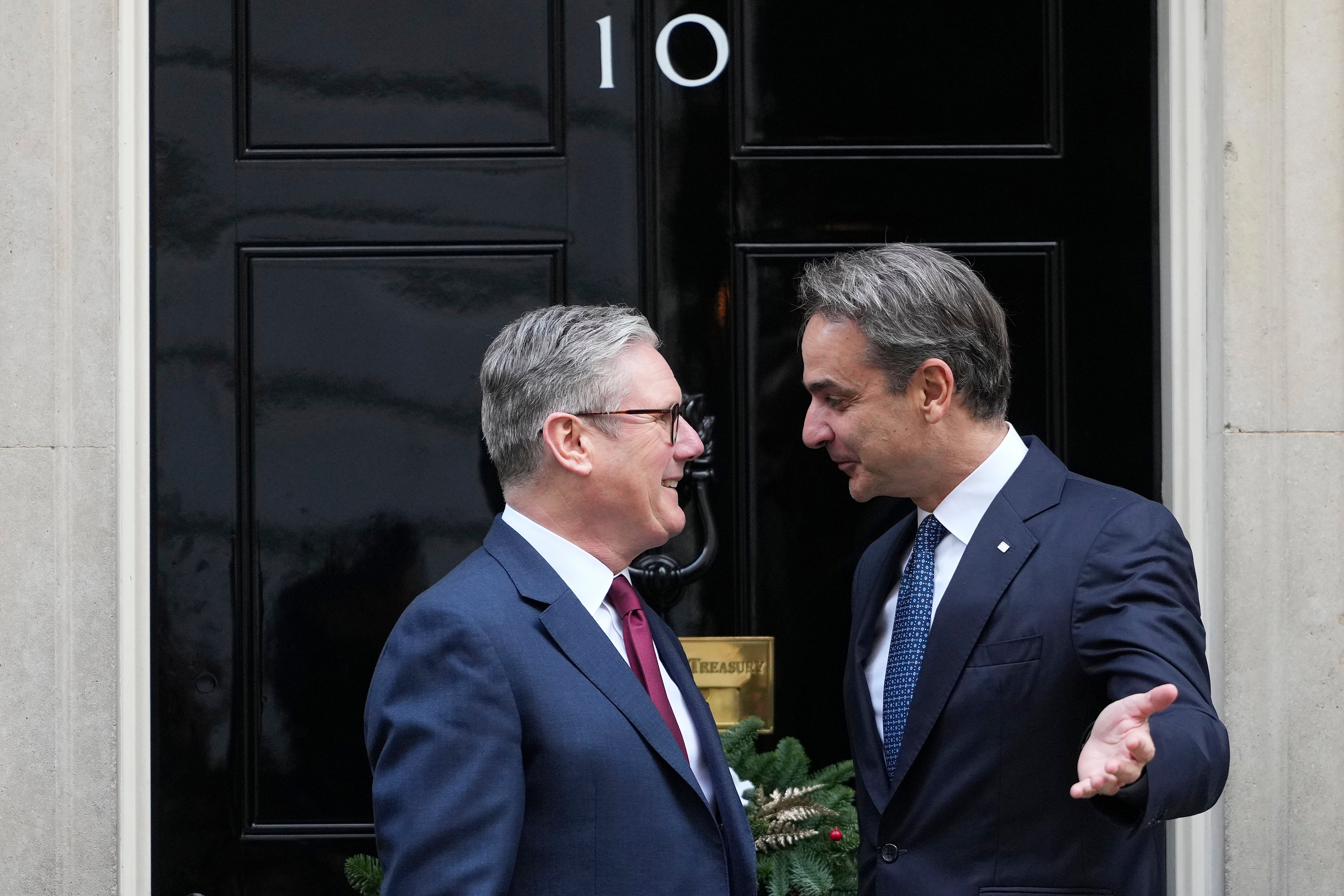Greece claims ‘progress made’ on Elgin Marbles – but Starmer rules out talks

Subscribe For Expert Insights From Westminster
Subscribe For Your Free Westminster Email Update
Subscribe For Our Free Westminster Update Email!
I would like to receive emails regarding promotions, events, and news from The Independent. Please check out our privacy policy.

Sir Keir Starmer dismissed the idea of talking about the possible return of the Elgin Marbles to Greece during his meeting with his Greek counterpart on Tuesday, even though Athens has suggested that there has been some advancement on this matter.
Although Downing Street maintained that the historic sculptures wouldn't be part of the discussions in the meeting between Sir Keir and Kyriakos Mitsotakis, a spokesperson from the Greek government announced that there has been some advancement, and the topic will be revisited on Tuesday.
A Greek official informed The Times: “Both sides have made headway regarding the return of the Parthenon marbles, which is why Mitsotakis is having a meeting with the British prime minister today. There are no secrets. Everything is out in the open.”
Before the meeting, the official spokesperson for the prime minister stated, “This issue won’t be on the prime minister's list of priorities. His attention will be directed towards assisting Ukraine and the pressing requirement for a ceasefire in Gaza.”
On Tuesday morning, the prime minister greeted Mr. Mitsotakis at Number 10. This marks the Greek leader's initial official trip to the UK following a disagreement with Rishi Sunak's government concerning the ancient marbles, which are also referred to as the Parthenon Sculptures.
After the meeting, a spokesperson from Downing Street emphasized that there has been “no shift in the government’s stance.” They also mentioned, “This is an issue for the British Museum. The government has no intentions of altering the law to allow for a permanent relocation of the Elgin Marbles.”

A representative from the British Museum stated that talks with Greece regarding a potential collaboration on the Parthenon are currently continuing and progressing positively.
“We think that establishing a long-term partnership would effectively combine the opportunity to showcase our most treasured items to global audiences while preserving the integrity of our remarkable museum collection.”
Greece has consistently argued that the Elgin Marbles were taken unlawfully from their location on the Acropolis of Athens during a time of foreign rule.
Both the government and the British Museum disagree with this description.
This comes after reports that discussions regarding the future of the statues are progressing significantly, according to sources familiar with the negotiations between the museum and the Greek Foreign Ministry.
According to The Guardian, a collaborative cultural agreement could play a central role in the arrangement, potentially allowing for the return of the sculptures to Athens in trade for the chance to showcase renowned artworks.
The marble sculptures originate from the friezes of the Parthenon temple, which is over 2,500 years old, and they have been showcased at the British Museum for over two centuries.
Lord Elgin took them away in the early 1800s while he was serving as the British ambassador to the Ottoman Empire.
A number of the surviving temple statues can be found at the specially designed Acropolis Museum in Athens, and Greece has consistently urged for the collection to be brought back together.
Tensions between Greece and the UK arose during the previous administration when former Prime Minister Sunak called off a meeting with Mr. Mitsotakis, who had been advocating for the return of the sculptures.
Mr. Sunak rejected claims that he had a tantrum regarding the issue and said that his counterpart was simply seeking attention.
Mr. Mitsotakis likened the separation of the Elgin Marbles from the ones remaining in Athens to slicing the Mona Lisa down the middle.





























































